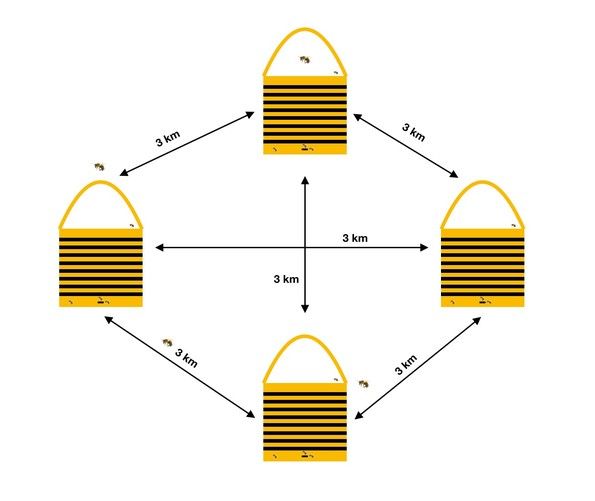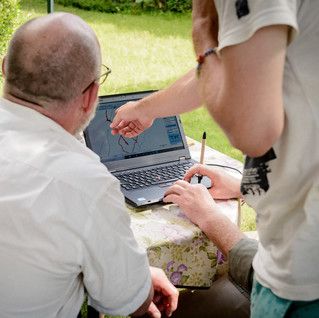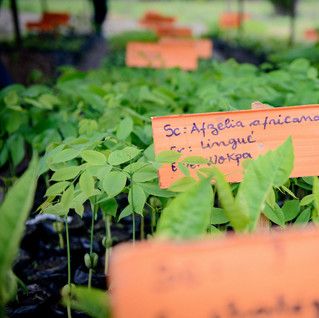We save the bees
Together we can achieve great things. Each of us is responsible for the protection
of the bees! Starting with the garden of each individual up to you as an entrepreneur with greater opportunities ...


strengthen
community
early

convey kid's
awareness of the
environment

appropriate
treatment of
animals
Give a beehive in PROJECT TOGO and do something really meaningful!
BEEs for PROJECT TOGO!
EUR 50,00 and you take care for 40.000 bees...
As part of the Agricultural Cooperative, we train 12 beekeepers every year at our beekeeping school. This training is paid from the income of the Agricultural Cooperative.
To support the Agricultural Cooperative, we are looking for companies that want to get involved, especially in the field of beekeeping.
1 beehive, made from local tropical timber, accommodates 1 colony of bees with up to 40,000 bees and delivers about 7 kg of honey in the first year. Already in the second year is to be expected with a honey yield of up to 15 kg.
With the sale of honey from 5 beehives, Togo can feed a family of 4-7 and send all children to school for a year.
After an inspection of the State Agricultural School of Togo their experts have come to the conclusion that due to the many trees with special flowering power, on the area up to 1,000 bee colonies could find a home. We would like to start with a target of 600 beehives. We invite you, together with other committed people, to make sure that we reach this goal.
documentary confirmed,
with donation receipt
For each beehive given away by you, you will receive a certificate, which you can hand over to your customer. At regular intervals we inform you with pictures and videos about the progress of the bee project. You will also receive a donation receipt from our non-profit organization ecoCent e.V..
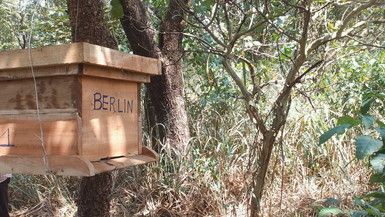
Beehive "Berlin", at the afforestation site.
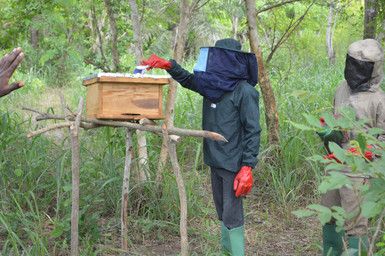
Bees sting in Togo too, so our beekeepers are profesionally dressed.
How are the Costs distributed?
We do not want to leave you unaware about that...
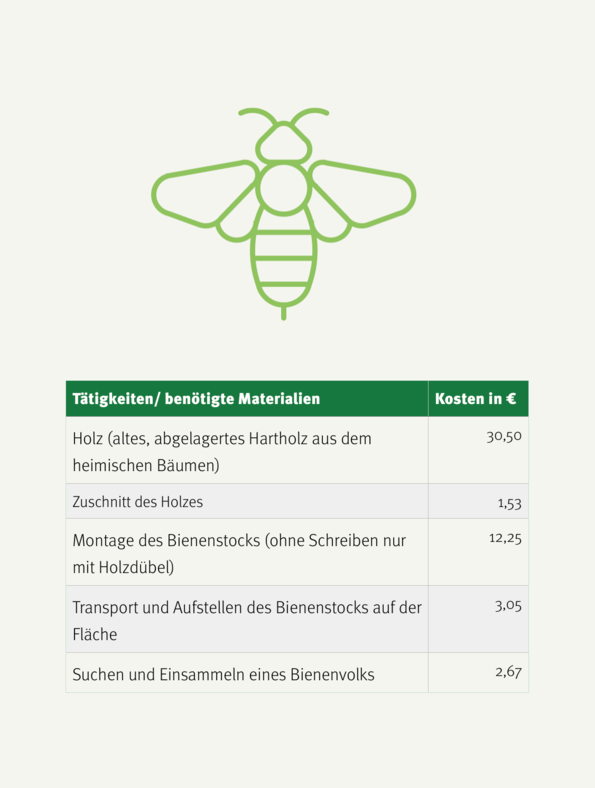
Interesting about
Beekeeping in Togo
- Coleoptera, a beetle, sometimes nests in the hives and steals the honey
- protecting the hives against the butterfly larva can be assured by reducing the size of the entrance
- ashes on the ground protect the beehives from the access of ants
- feeding in the rainy season by syrup and dried maniok (starch)
- there are smaller bright bees and there are black ones, but they are a bit more aggressive and willingly and quickly attack, especially if it gets tight in the hive the number of drones increases within 20 yards of the hive patroling and therefore attack faster.
- usually a hive houses of about 40,000 bees
- bees are flower loyal (but only one day over)
- bees move up to 3 km from the hive
- mites are known, but they almost never occur in beehives
Beekeeping
With our beehives, we will be on the spot of the Beekeeping Cooperative Connect COOP-CA-AEH.
This connection to the cooperative has very practical reasons for us.
On the one hand, it is an initiative that is truly exemplary and has been on the road in many villages in Togo for many years, for beekeeping and husbandry to promote biodiversity as well as to be very professional in the field of education.
We think it is important to strengthen and support such locally launched initiatives whenever possible.
Another advantage of membership is that we are neither concerned about equipment sieves or honeys extractors must take care of, everything is provided by the cooperative.
At the same time, the cooperative also looks after customers and marketing the honey. The price for this is a co-operation contribution of 3 kg honey per hive and year.
This is how we setup the hives
